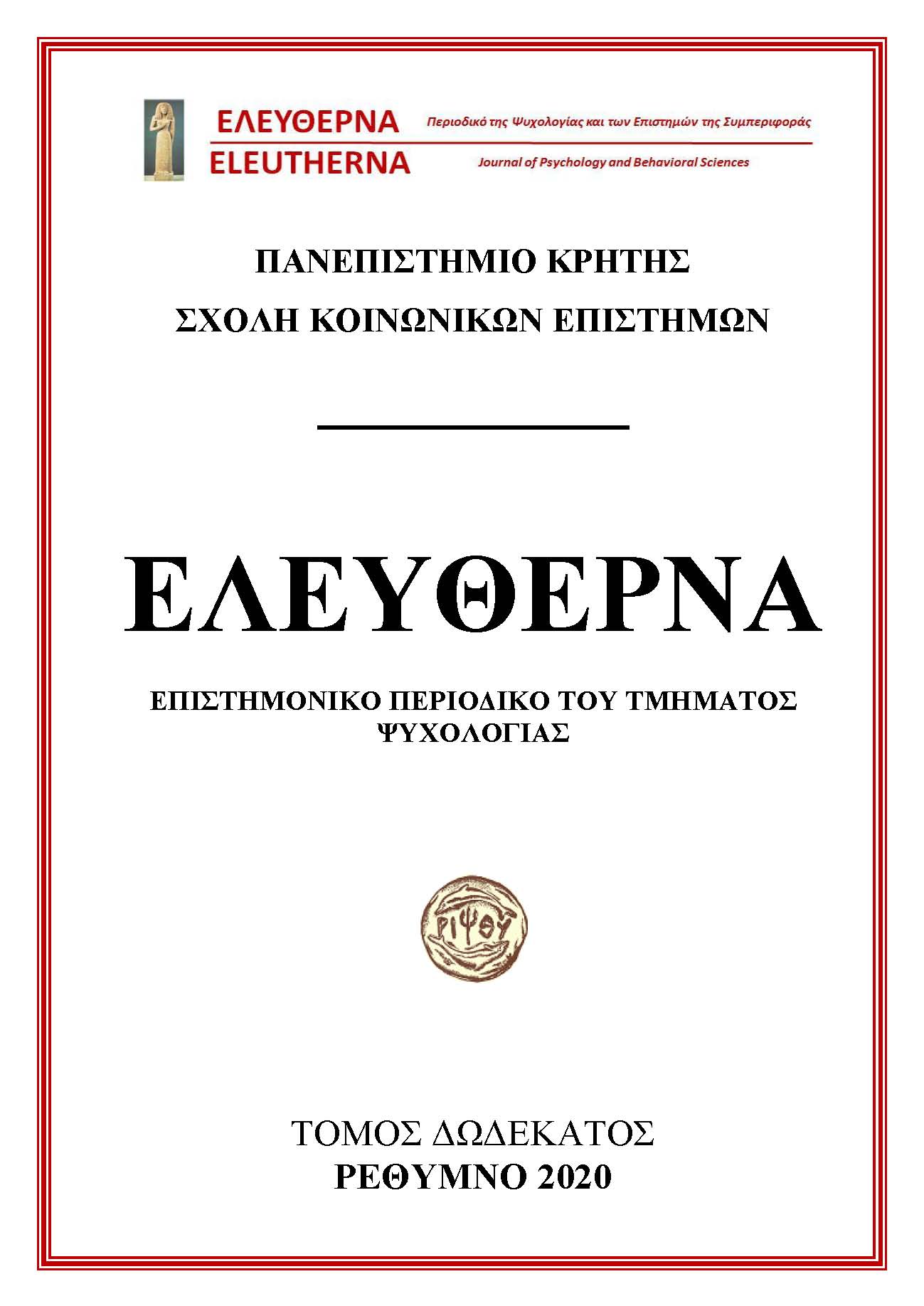The association of family functioning with eating attitudes in university students
DOI:
https://doi.org/10.26248/eleutherna.v12i0.1544Keywords:
family functioning, cohesion, flexibility, Circumplex Model, eating attitudes, studentsAbstract
Empirical research has systematically confirmed the association between dysfunctional family environment and disordered eating attitudes in young adults. However, the majority of the studies have focused in clinical populations or assessed specific dimensions of intrafamilial relationships. The aim of the present study was to investigate the association of family functioning, as conceptualized by the Circumplex Model of Marital and Family Systems, with eating attitudes in a sample of Greek university students. Four hundred and three participants (284 females and 119 males) with a mean age of 21.14 years (S.D.±3.34 years) completed self-report measures of family functioning (Family Adaptability and Cohesion Evaluation Scales Package, FACES-IV Package) and eating attitudes (Eating Attitudes Test, EAT-26). Findings from multiple regression analysis suggested that aspects of family functioning, such as enmeshment and rigidity, were related to dysfunctional eating attitudes in university students, after adjusting for confounding variables such as gender, age, year of study and Body Mass Index. This research highlights the important role of various aspects of family functioning in relation to dysfunctional eating attitudes in young adults. These findings are useful to guide further research into the role of family dynamics in abnormal eating attitudes and would be valuable in designing psychoeducational interventions focusing on healthy eating.
Downloads
Published
How to Cite
Issue
Section
License
This work is licensed under a Creative Commons License Attribution-NonCommercial-ShareAlike 4.0 International (CC BY-NC-SA 4.0).
Under this license EJPBS provides immediate open access to its content on the principle that making research freely available to the public supports a greater global exchange of knowledge.


